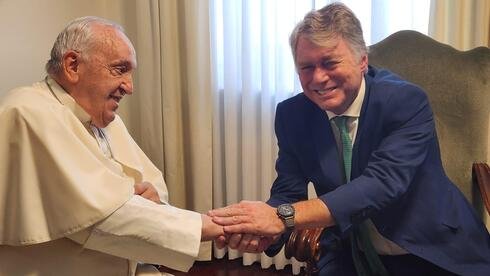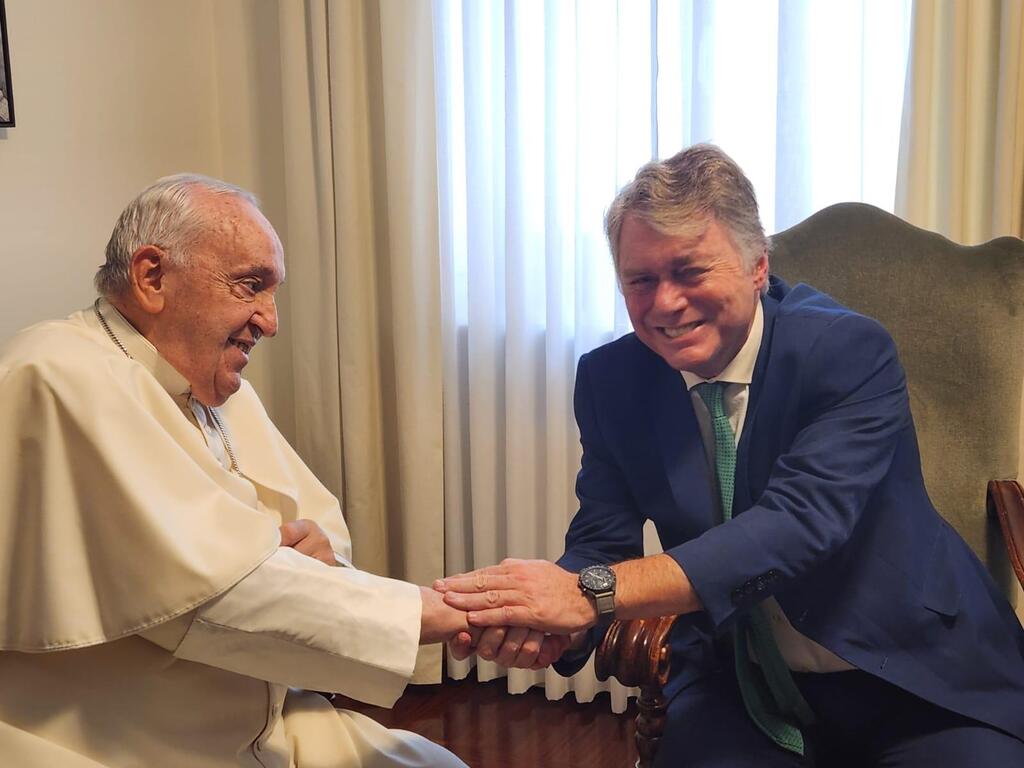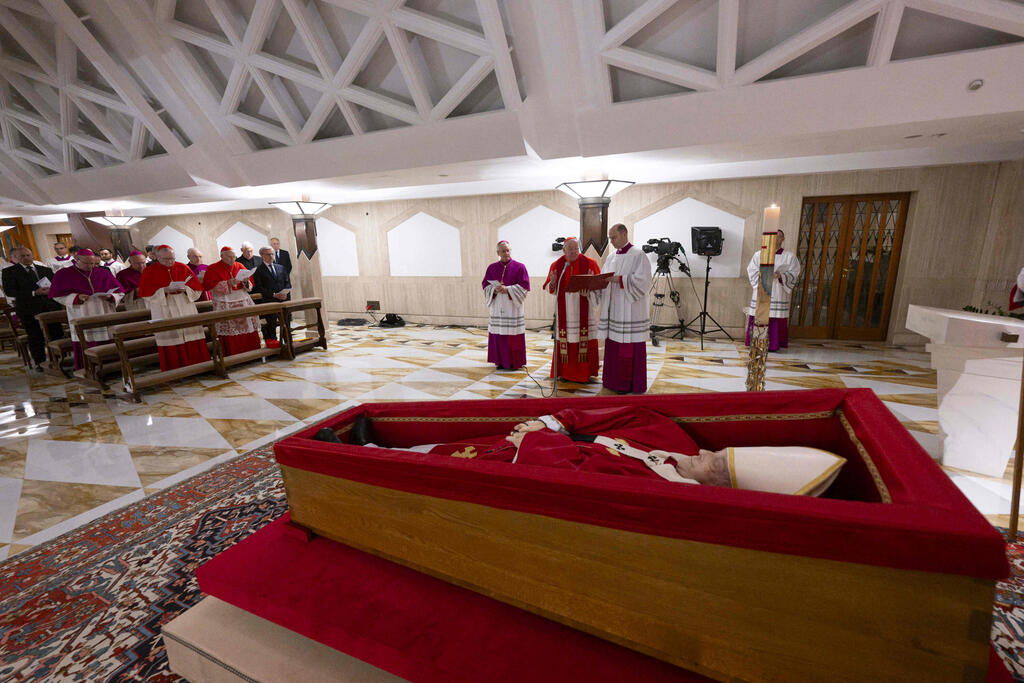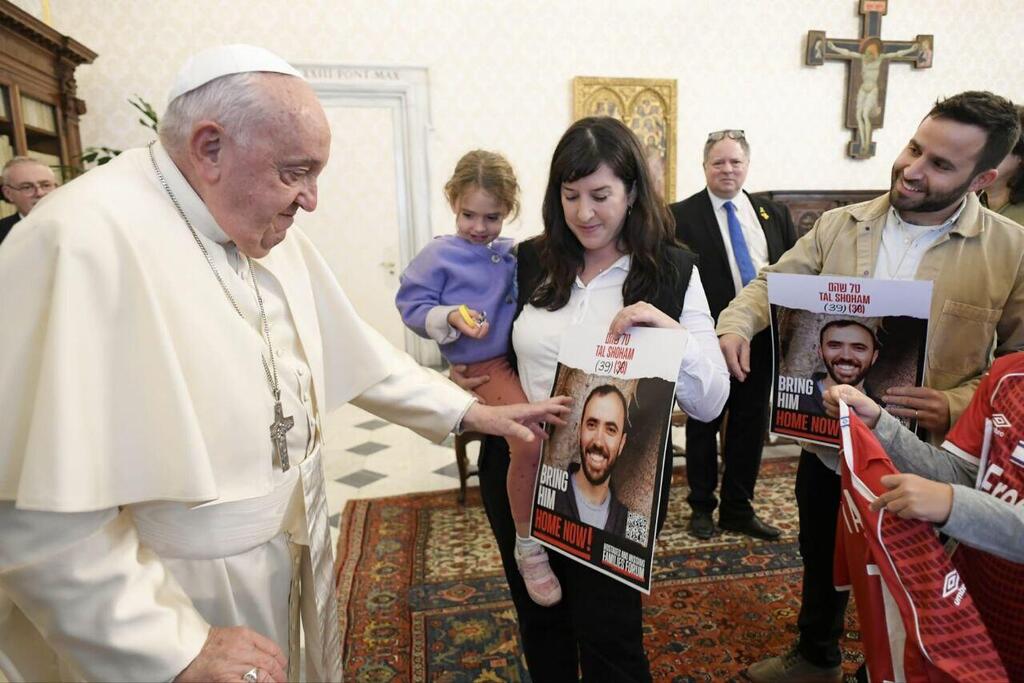“He was not the representative of God on Earth for me. I’m Jewish,” said Henrique Cymerman, a Middle East correspondent and professor of diplomacy at Reichman University in Israel. “But he was a world leader of the highest order—a great friend of the Jewish people.”
Cymerman, who met Pope Francis three months after his election in 2013, became what the pontiff affectionately referred to as his “personal ambassador.” Over the past decade, they met privately dozens of times. “Every month since January 2023, I saw him. An hour and a half, sometimes two, just the two of us.”
After the October 7 Hamas attack, Cymerman recalled, Francis called him directly. “He had friends in the kibbutzim near Gaza—some murdered, others kidnapped. He told me: ‘These people have taken us back 50 years.’” During missile fire in Tel Aviv, the pope remained on the phone with him in silence, praying until the alarm ended.
For Rabbi Abraham Skorka, a senior research fellow in Jewish Studies and Jewish-Catholic Relations at Georgetown University, and perhaps Francis’s most intimate Jewish interlocutor, the loss is deeply personal. “He was not just a pope. He was my friend,” Skorka said. “We dreamed of the same world—a world not as it is, but as it should be.”
Their friendship began in Buenos Aires when then-Father Jorge Mario Bergoglio was the archbishop, and Skorka was the rector of the Latin American Rabbinical Seminary. “When I invited him to my synagogue for Selichot, he didn’t just come and say a polite hello. He delivered theological reflections on Teshuvah based entirely on the Hebrew Bible. And he told me: ‘I prayed with you. I truly prayed with you.’”
Their connection was never about theological fusion. “Syncretism would have been a failure,” Skorka emphasized. “We never tried to convince each other. We aimed to understand.”
In 2014, the two joined Muslim leader Omar Abboud in an embrace at the Western Wall—an image that came to symbolize Francis’s papacy. That same year, Francis hosted Israeli President Shimon Peres and Palestinian Authority President Mahmoud Abbas in the Vatican Gardens. Skorka, who helped facilitate the encounter, called it “a prophetic meeting, one that spoke the language of the prophets, not of politics.”
Rabbi David Rosen, former International Director of Interreligious Affairs for the American Jewish Committee and a member of the Chief Rabbinate’s Commission for Dialogue with the Holy See, acknowledged this gap. “Pope Francis was seen justifiably as a great friend of the Jewish community worldwide,” he said. “But he did not appear to appreciate the extent of the trauma of October 7 for Jewry. He considered Israel's response to be too severe and disproportionate, and as a result, there was much disappointment, especially in Israel.”
Rosen added that while the Vatican’s condemnation of antisemitism had been “unequivocal,” and Francis repeatedly emphasized that “a true Christian cannot be an antisemite,” his moral framing of the war struck many in the Jewish world as out of touch with the threats Israel faces. “Within the Jewish community, especially in Israel, the resurgence of antisemitism since October 7 reflects a lack of understanding of those threats—if not outright Jew-hatred.”
A planned meeting between the Pope and the Israeli Chief Rabbinate in March was cancelled due to his hospitalization. “That meeting never happened,” said Rosen, “but the invitation itself was a sign of his willingness to address the tension.” A similar meeting with President Isaac Herzog was also postponed.
Tensions escalated further after Francis cited John 8:44—a verse historically misused against Jews—in a homily on war’s spiritual evil. Though the Vatican clarified his intent, the quotation was widely viewed as insensitive given the context. Symbols such as a Palestinian keffiyeh appearing in a nativity scene at the Vatican also stirred backlash.
Observers attribute some of these missteps to the Pope’s broader worldview. Shaped by liberation theology and a postcolonial lens, Francis often framed the Israeli-Palestinian conflict in terms of power imbalance—a perspective that, critics argue, did not fully account for the nature of Hamas or Israel’s security reality.
Public reaction in Israel following Francis’s death reflected that same unease. The Israeli Foreign Ministry reportedly deleted an initial condolence message shortly after it was published, wary of backlash. President Isaac Herzog issued the only high-level message of sympathy. The muted response underscored how deeply the Pope’s language on Gaza had strained perceptions, even in mourning.
Cymerman acknowledged the divergence. “He didn’t always agree with Israeli policy. We spoke openly. I told him when I thought he was wrong. But there was always respect.”
Skorka, too, noted that their method was rooted in honesty. “He wanted people, not institutions. One person at a time, building a message. That was his way.” He described their final attempt to bring Herzog to meet Francis—also canceled due to illness—as symbolic of an effort unfinished.
All three men remember him as a spiritual leader who took moral risks—sometimes misunderstood, often courageous—and believed that the personal could shape the political. “There’s a word in Hebrew,” Skorka said. “Emun. It means faith and trust. We had both.”
Asked whether another pope like Francis could emerge, Skorka was cautious. “It won’t be easy. But he showed that a rabbi and a pope can walk together, side by side.”
He quoted the prophet Amos: “Can two walk together unless they have agreed to do so?” And then added: “We had a pact—to make the world better. That was our shared mission.”
As the world mourns Jorge Mario Bergoglio, those who knew him best do not speak only of doctrine. They speak of silent prayers during rocket fire, of quiet disagreements over war and peace, and of a friendship that dared to reach across faith, politics, and history. “May his memory,” Skorka said, “be a source of blessings for eternity.”




